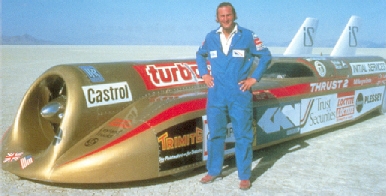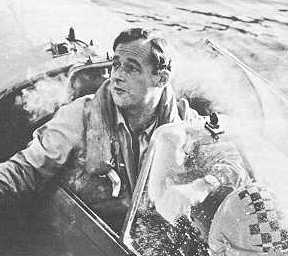

"The water's not so good...I can't see much...I'm going...I'm on my back...I've gone.''
Theses are the last recorded words ever heard spoken by Donald Campbell. They still haunt those who remember his traumatic death on Lake Coniston on 4 January 1967.The famous black and white footage of his jet-powered Bluebird lifting from the water, before viciously somersaulting and breaking in two, is still horrifyingly hypnotic. I can still remember, as a small child, watching the film on the television news, such was the potency of the imagery. That Campbell's body was never recovered from the gloomy depths of Coniston adds to the terrible nature of his passing - a legendary man that history is sure to record as one of England's last great heroes.
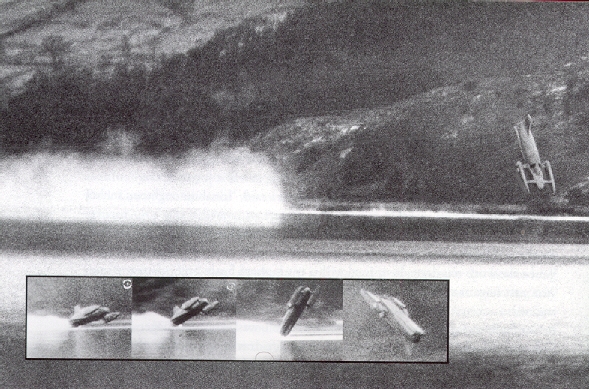
"Britain and the world have such need of the indomitable spirit, the sheer dedication, the unconquerable determination he had"........... taken from Campbell's memorial service
Campbell's life was as dramatic as his death at the age of 46. A complex character, descended from the Campbell clan of Argyll, he left home at the age of 18 to escape the strict regime imposed by his own record-breaking father, Sir Malcolm Campbell. He became a successful businessman, first as an insurance broker at Lloyds, and later as a company director. It was his steady acquisition of wealth that allowed him to indulge his passion for speed and the re-writing of record books - an obsession that would eventually kill him. Campbell married three times, travelled the world extensively, enjoyed gambling, dabbled in the occult and his enigmatic personality either repelled or attracted others.
The Times' obituary of Campbell said he was a "showman with the inherent flair that would probably have carried him to the heights of the theatrical world.''
CAMPBELL'S TEMPESTUOUS private life throughout the 1950s and 1960s reflected the highs and lows of his racing career as he attempted to shatter world land and water speed records. As a young man, he first tasted the exhilaration of speed when he bought a second-hand Rex motor cycle for £15 and a love of aeroplanes and cars quickly followed. When his father, Sir Malcolm, died in 1949 leaving instructions that his famous Bluebird boat must be sold, Donald, free of the paternal shadow, was determined to go against his wishes. Within seven months he had scrimped together every penny he had and bought Bluebird from the executors. However, with little experience of handling a boat at speed it took him six years to add his name to the record books. There were many failures including a disastrous accident on Coniston in 1951 when the original Bluebird sank. But his new jet-propelled Bluebird guaranteed his reputation when, in July 1955, he broke the 200mph water barrier on Ullswater.
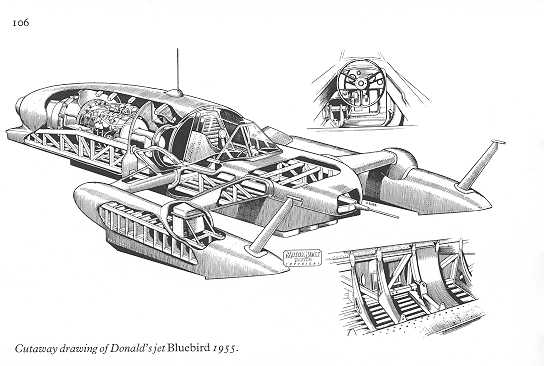
By the time of his death, 12 years later, Campbell had notched up seven world water speed records and one land record, and in 1964 he became the only man ever to have broken the land and water speed record in one calendar year. He was awarded the CBE in 1957.
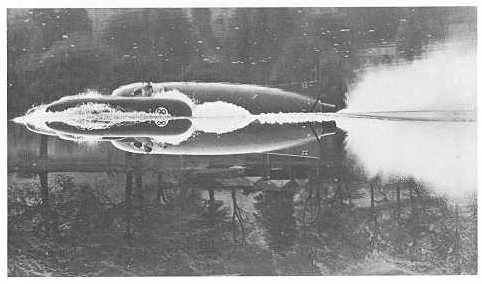
![]()
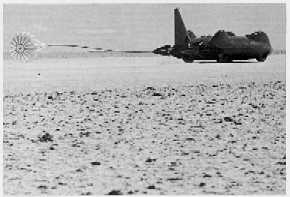
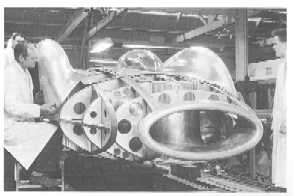
But it is the manner of his death, as much as his phenomenal speed
achievements, that has etched the memory of Donald Campbell in our
collective consciousness, especially for those of us living in
Cumbria, the scene of so many glorious feats. The eerie 1967
footage of Bluebird in its death leap holds the same macabre
fascination for people as the jumpy film of the Hindenburg airship
crashing to the ground in a ball of flames 30 years earlier.

